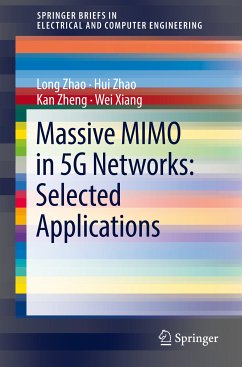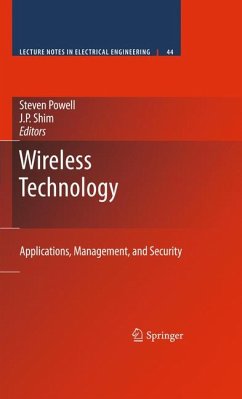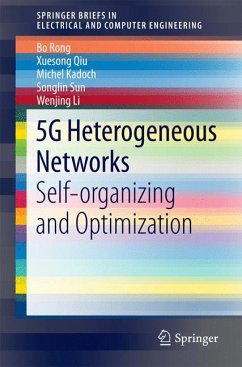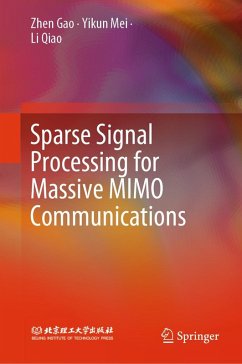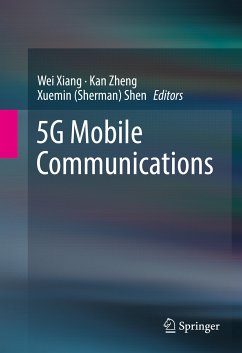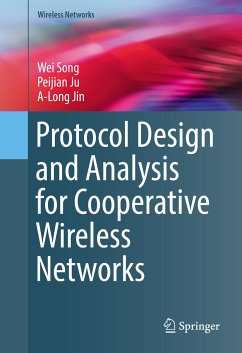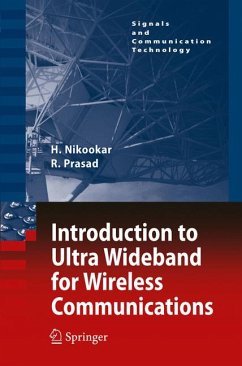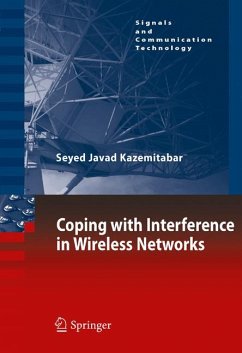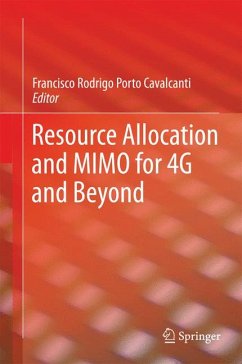
Massive MIMO Meets Small Cell (eBook, PDF)
Backhaul and Cooperation
Versandkostenfrei!
Sofort per Download lieferbar
40,95 €
inkl. MwSt.
Weitere Ausgaben:

PAYBACK Punkte
20 °P sammeln!
This brief explores the utilization of large antenna arrays in massive multiple-input-multiple-output (MIMO) for both interference suppression, where it can improve cell-edge user rates, and for wireless backhaul in small cell networks, where macro base stations can forward data to small access points in an energy efficient way. Massive MIMO is deemed as a critical technology for next generation wireless technology. By deploying an antenna array that has active elements in excess of the number of users, massive MIMO not only provides tremendous diversity gain but also powers new aspects for ne...
This brief explores the utilization of large antenna arrays in massive multiple-input-multiple-output (MIMO) for both interference suppression, where it can improve cell-edge user rates, and for wireless backhaul in small cell networks, where macro base stations can forward data to small access points in an energy efficient way. Massive MIMO is deemed as a critical technology for next generation wireless technology. By deploying an antenna array that has active elements in excess of the number of users, massive MIMO not only provides tremendous diversity gain but also powers new aspects for network design to improve performance.
This brief investigates a better utilization of the excessive spatial dimensions to improve network performance. It combines random matrix theory and stochastic geometry to develop an analytical framework that accounts for all the key features of a network, including number of antenna array, base station density, inter-cell interference, random base station deployment, and network traffic load. The authors explore the impact from different network parameters through numerical analysis.
Researchers in wireless network design will find this to be an exceptional resource, as will advanced-level students or professionals working in networking and information systems design.
Dieser Download kann aus rechtlichen Gründen nur mit Rechnungsadresse in A, B, BG, CY, CZ, D, DK, EW, E, FIN, F, GR, HR, H, IRL, I, LT, L, LR, M, NL, PL, P, R, S, SLO, SK ausgeliefert werden.



